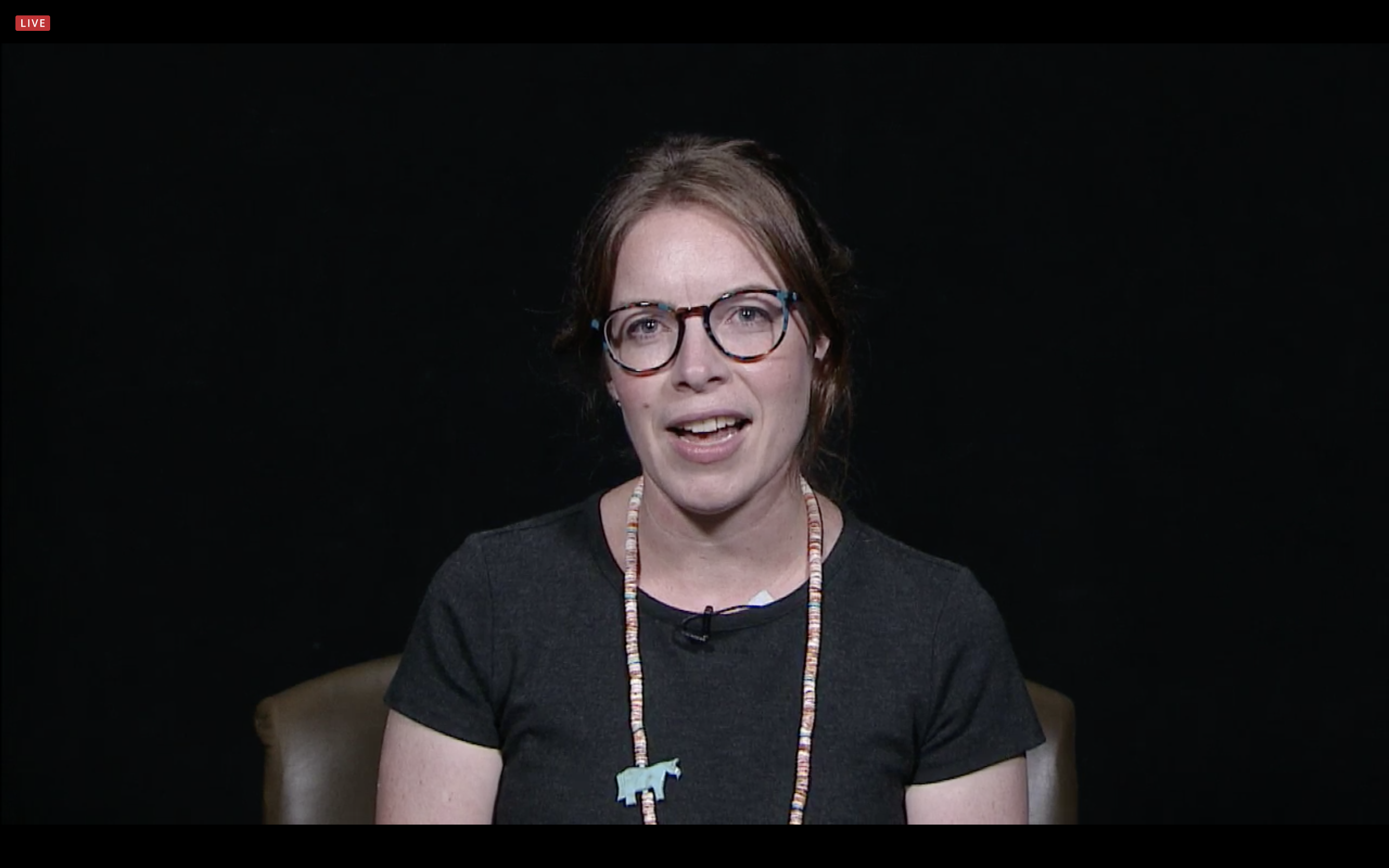“I just want you to know that I want you to remarry after I die.”
These were the words that the late Paul Kalanithi ’99 M.A. ’00 said to his wife, clinical associate professor Lucy Kalanithi, just hours after he was diagnosed with Stage IV lung cancer. Paul was a neurosurgery instructor at the School of Medicine and a fellow at the Stanford Neuroscience Institute. When he wasn’t teaching others how to save lives, he was a writer.
He eventually authored “When Breath Becomes Air,” a memoir documenting his experience battling cancer, which was posthumously published and became a New York Times bestselling memoir nominated for the Pulitzer Prize.
During Tuesday evening’s 30th Annual Jonathan J. King Lecture, Lucy sat down with fellow clinical associate professor Stephanie Harman to discuss her husband’s book and how it drove her to become a storyteller with goals to innovate healthcare delivery.
“I think the experience of us being two physicians facing this was definitely helpful in almost every way,” Lucy said, referring to when the couple received Paul’s diagnosis. “What came out of it was a realization of how important it was to be straightforward and to acknowledge what was happening while trying to uncover what it is that makes life worth living.”
One of the memoir’s reviews described it as “crackling with life,” Lucy explained. She said that this review accurately captured Paul’s state as he became a writer during the final stages of his life.
“In the end, your body betrays you in a way, and he had become disabled to a point that he couldn’t do the things he previously loved to do,” she said. “But he was not at all prevented from using his mind to participate in the world of ideas and creativity.”
As lung cancer began to transform his physical well-being, Paul started documenting his journey through writing. One of the first pieces that he wrote about his experience appeared in the New York Times titled, “How Long Have I Got Left?”
Prior to deciding on becoming a neurosurgeon, Paul also considered careers in academia because of his love for English literature. As an undergraduate at Stanford, he wrote for The Daily. He graduated with a B.S. degree in human biology and a B.A. and M.A. degree in English literature.
During the event, Lucy also spoke about the couple’s decision to have their daughter, Cady, who is now six years old. Paul passed away eight months after her birth.
Lucy said she shares memories of her late husband with their daughter, who only recalls “a warm feeling” when thinking about Paul. Although Lucy said that teaching her first-grader about death is complex because of her young age, she also said that she learns a lot about perceptions of death from Cady’s acceptance of life without a living father.
“There’s just a lot of learning about how to live into this,” Lucy said.
When asked by Harman about how Paul’s passing changed her personal life, Lucy said she hopes to use her family’s story to open up larger conversations about the healthcare system.
“I’ve shifted from being a policy delivery person to being a storyteller but with some of the same aims and underlying goals,” Lucy said. She is an advocate for cultural change around healthcare value and has already implemented novel delivery models of care across primary care, hospitals and health systems.
She has a podcast, “Gravity,” that is currently in the works. The podcast aims to share narratives of suffering. Lucy also previously sat down with The Daily to discuss her husband’s legacy.
Contact Camryn Pak at cpak23 ‘at’ stanford.edu.
